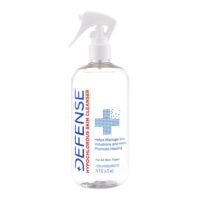What is MRSA Staph Infection?
MRSA Staph Infection is a type of staph skin infection caused by the Methicillin-Resistant Staphylococcus Aureus (or MRSA) bacteria. First noticed in 1961 the MRSA bacteria developed as the commonly found S. Aureus bacteria evolved resistance to the antibiotic Methicillin.
Since then the MRSA bacteria has evolved, and many of its strains have become resistant to several antibiotics like penicillin, oxacillin, amoxicillin (Amoxil, Dispermox, Trimox), tetracycline (Sumycin), erythromycin (E-Mycin, Eryc, Ery-Tab, PCE, Pediazole, Ilosone), and clindamycin (Cleocin). Because of its resistance to many antibiotics, MRSA is also called as the Superbug.
What are the signs and symptoms of MRSA infection?
Like most staph infections, the symptoms of MRSA infection vary from redness of the skin to swelling and collection of pus in the affected areas. That may be accompanied by pain, and as the infection becomes severe, the patient may suffer from fever.
The collection of pus may be in the form of:
- Boils a pus-filled infection of hair follicles
- Cellulitis a severe infection of the fat and tissues that lie immediately beneath the skin, usually starting as small red bumps on the skin
- Abscesses a collection of pus under the skin
- Sty an infection of the eyelid gland
- Carbuncles an infection more substantial than an abscess, usually with several openings to the skin
- Impetigo a skin infection with pus-filled blisters
How a Combat Athlete and a Wrestler can prevent MRSA infections?
Due to the nature of the sport combat athletes and wrestlers become more prone to skin diseases including MRSA staph infection. Preventing MRSA may seem a daunting task, but these simple precautions can help reduce the risk:
- Avoid close contact with skin, clothing, and any items that come in contact with anyone known to have MRSA
- Cover any skin breaks with band-aids as soon as possible
- Use excellent hygiene practices
- Hand washing with soap after personal contact or toilet use
- Wash equipment and clothes after each practice, match, or bout
- Use wipes to both clean hands and surfaces that may contact MRSA
- Use clean razors
